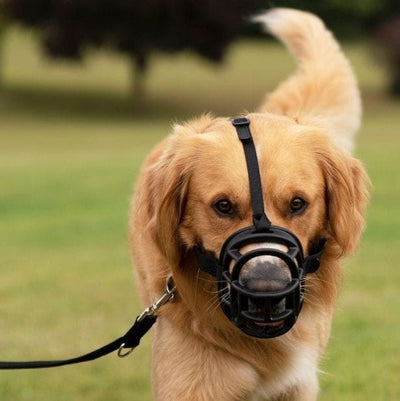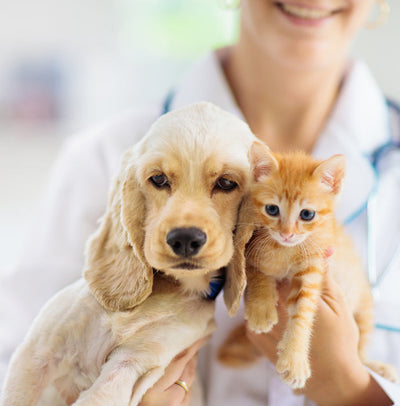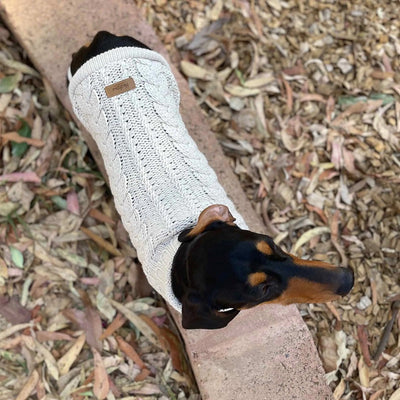 Are you considering adopting a Quaker parrot? Or have you recently welcomed one into your home? Either way, you've come to the right place. In this comprehensive guide, we'll cover everything you need to know about Quaker parrot care. From their diet and habitat requirements to their social needs and common health issues, we'll leave no stone unturned.
Are you considering adopting a Quaker parrot? Or have you recently welcomed one into your home? Either way, you've come to the right place. In this comprehensive guide, we'll cover everything you need to know about Quaker parrot care. From their diet and habitat requirements to their social needs and common health issues, we'll leave no stone unturned.
Quaker parrots, also known as Monk parakeets, are intelligent and charismatic birds that can bring joy and entertainment to your life. However, they require proper care and attention to ensure their well-being. By understanding their unique traits and specific care needs, you can create a fulfilling and enriching environment for your feathered friend.
Whether you're a first-time bird owner or an experienced avian enthusiast, this guide will provide you with the essential information to keep your Quaker parrot healthy and happy. So let's dive in and discover the ultimate guide to Quaker parrot care.
Quaker Parrot characteristics and behaviour
Quaker parrots are known for their vibrant green or blue plumage and expressive personalities. They are medium-sized birds, typically measuring around 30cm in length. One of their most captivating features is their ability to mimic sounds and speech, making them excellent companions.
These parrots are highly social creatures and thrive on interaction with their human caregivers. They have a playful and curious nature, often engaging in activities such as exploring toys, hanging upside down, and even solving puzzles. Quaker parrots enjoy being the center of attention and can form strong bonds with their owners.
However, it's important to note that Quaker parrots can also exhibit aggressive behaviour if not properly socialised and trained. This can include biting, screaming, or feather plucking. With consistent positive reinforcement and patient training, these behaviors can be corrected, and a loving bond can be formed.
In order to keep your Quaker parrot happy and mentally stimulated, it's essential to provide them with plenty of toys, puzzles, and activities. They thrive in an environment that challenges them intellectually and encourages physical exercise. Regular out-of-cage time and social interaction with their human caregivers are also crucial for their well-being.
Quaker Parrot diet and nutrition
 Proper nutrition is key to maintaining the health and vitality of your Quaker parrot. Their diet should consist of a variety of fresh fruits, vegetables, grains, and high-quality pellets. It's important to offer a balanced mix of these food groups to ensure they receive all the necessary vitamins, minerals, and nutrients.
Proper nutrition is key to maintaining the health and vitality of your Quaker parrot. Their diet should consist of a variety of fresh fruits, vegetables, grains, and high-quality pellets. It's important to offer a balanced mix of these food groups to ensure they receive all the necessary vitamins, minerals, and nutrients.
A good rule of thumb is to provide a daily mix of 60% high-quality pellets, 30% fresh fruits and vegetables, and 10% grains and seeds. Fresh water should always be available, and it's important to clean and replace their food and water bowls regularly to prevent bacterial growth.
Some safe fruits and vegetables for Quaker parrots include apples, oranges, berries, carrots, broccoli, spinach, and kale. Avoid feeding them foods that are toxic to birds, such as avocado, chocolate, caffeine, alcohol, and sugary treats. It's also important to limit the intake of high-fat foods, as Quaker parrots are prone to obesity.
In addition to their main diet, Quaker parrots enjoy occasional treats such as nuts, whole grains, and cooked eggs. These should be offered in moderation to avoid overconsumption. It's important to monitor their weight and adjust their diet accordingly to maintain a healthy body condition.
Housing and cage setup for Quaker Parrots
 Creating a suitable habitat for your Quaker parrot is essential for their well-being. The size of the cage should allow them to fully extend their wings and move around comfortably. A minimum cage size for a single Quaker parrot is 60cm long, 60cm wide, and 60cm high. The cage should also have horizontal bars for climbing and plenty of perches for them to rest and exercise.
Creating a suitable habitat for your Quaker parrot is essential for their well-being. The size of the cage should allow them to fully extend their wings and move around comfortably. A minimum cage size for a single Quaker parrot is 60cm long, 60cm wide, and 60cm high. The cage should also have horizontal bars for climbing and plenty of perches for them to rest and exercise.
Place the cage in a well-lit area, away from drafts and direct sunlight. Quaker parrots are sensitive to temperature extremes, so it's important to maintain a comfortable environment for them. The cage should be cleaned regularly to prevent the buildup of droppings and bacteria.
Inside the cage, provide a variety of toys, perches, and swings to keep your Quaker parrot entertained and stimulated. They enjoy chewing on wooden toys, shredding paper, and playing with bells. It's important to rotate their toys regularly to prevent boredom.
Quaker parrots are messy eaters, so it's a good idea to place a tray or grate at the bottom of the cage to catch any food debris. This will make cleaning the cage easier and help maintain a hygienic environment for your bird.
Quaker Parrot socialisation and training
 Quaker parrots are highly sociable birds that require regular interaction and socialisation with their human caregivers. They thrive on attention and enjoy being part of the family. Spend time talking to and playing with your Quaker parrot every day to build a strong bond.
Quaker parrots are highly sociable birds that require regular interaction and socialisation with their human caregivers. They thrive on attention and enjoy being part of the family. Spend time talking to and playing with your Quaker parrot every day to build a strong bond.It's important to handle your Quaker parrot gently from an early age to ensure they become comfortable with human touch. Start by offering treats and rewards while gradually introducing them to being touched on different parts of their body. This will help them become accustomed to being handled and make vet visits and grooming sessions less stressful.
Training your Quaker parrot can be a rewarding experience for both of you. These birds are highly intelligent and can learn a variety of tricks and commands. Positive reinforcement, such as treats and praise, should be used during training sessions to encourage desired behaviours. Quaker parrots are highly intelligent and can be trained to perform various tricks and commands.
Some basic commands to teach your Quaker parrot include step up, step down, and recall. These commands will help establish boundaries and enable you to have better control over your bird's behaviour. Remember to be patient and consistent during the training process, as it may take time for your Quaker parrot to learn and respond to commands.
Buying a Hand Raised Quaker Parrot in NSW
Our hand raised Quaker Parrots are accustom to being handled and make great family pets. They are a companion bird that will happily play all members of your family. Our hand raised birds are available at the end of spring. For availablility or more information about hatching times, please contact the store on 0248621175.
Common health issues in Quaker Parrots and how to prevent them
 Like all pets, Quaker parrots are susceptible to certain health issues. Being aware of these potential problems and taking preventive measures can help ensure your bird's well-being.
Like all pets, Quaker parrots are susceptible to certain health issues. Being aware of these potential problems and taking preventive measures can help ensure your bird's well-being.
One common health issue in Quaker parrots is obesity. These birds have a tendency to overeat, especially if they are offered high-fat or sugary foods. To prevent obesity, provide a balanced diet and monitor their weight regularly. Regular exercise, such as out-of-cage time and flying, is also important in maintaining their physical health.
Respiratory infections are another concern for Quaker parrots. These infections can be caused by exposure to drafts, cigarette smoke, or poor air quality. To prevent respiratory issues, ensure your bird's cage is placed in a well-ventilated area and avoid exposing them to smoke or chemicals.
Quaker parrots are also prone to feather plucking, a behaviour that can be caused by stress, boredom, or health issues. To prevent feather plucking, provide plenty of mental stimulation, social interaction, and a balanced diet. If feather plucking persists, consult a veterinarian to rule out any underlying health problems.
Vetafarm Parrot B-Calm is a briliiant functional complete diet formulated by avian veterinarians. Packed full of essential natural ingredients, Parrot B-Calm provides a balanced nutrition and helps in supporting the reduction of stress and anxiety.
Regular veterinary check-ups are crucial for monitoring your Quaker parrot's health and detecting any potential issues early on. Find an avian veterinarian with experience in treating Quaker parrots to ensure your bird receives the best care possible.
Quaker Parrot enrichment and mental stimulation
 Quaker parrots are highly intelligent and require mental stimulation to prevent boredom and behavioral issues. Providing them with a variety of toys, puzzles, and activities will keep their minds engaged and prevent them from becoming destructive.
Quaker parrots are highly intelligent and require mental stimulation to prevent boredom and behavioral issues. Providing them with a variety of toys, puzzles, and activities will keep their minds engaged and prevent them from becoming destructive.
Toys that encourage foraging and problem-solving are particularly beneficial for Quaker parrots. Hide treats inside puzzle toys or wrap them in paper for your bird to discover and unwrap. This will mimic their natural foraging behaviour and provide mental stimulation.
Additionally, rotate their toys regularly to prevent boredom. Introduce new toys and remove old ones to keep their environment fresh and exciting. Quaker parrots enjoy chewing on toys and shredding paper, so provide plenty of safe materials for them to explore.
Out-of-cage time is also important for their mental well-being. Allow your Quaker parrot to fly and explore a safe and supervised area outside of their cage. This will provide them with exercise and mental stimulation, as well as an opportunity to bond with their human caregivers.
Quaker Parrot lifespan and care considerations
Quaker parrots have an average lifespan of 20 to 30 years, although some can live even longer with proper care. This longevity means that adopting a Quaker parrot is a long-term commitment that requires careful consideration.
Before bringing a Quaker parrot into your home, ensure that you have the time, resources, and commitment to provide them with a suitable environment and proper care. This includes regular veterinary check-ups, a balanced diet, mental stimulation, and social interaction.
It's also important to note that Quaker parrots can be noisy. They are known for their loud vocalisations, which can include squawking, chirping, and even mimicking sounds and speech. If you live in an apartment or have close neighbors, consider the potential noise level before adopting a Quaker parrot.
Providing the best care for your Quaker Parrot
Quaker parrots make wonderful companions for bird enthusiasts. By understanding their unique characteristics and specific care needs, you can create a fulfilling and enriching environment for your feathered friend.
Remember to provide a balanced diet, a suitable habitat, plenty of social interaction, and mental stimulation for your Quaker parrot. Regular veterinary check-ups and preventive measures will help ensure their health and well-being.
With patience, love, and proper care, your Quaker parrot can bring joy and companionship to your life for many years to come. So embrace the adventure of Quaker parrot ownership and enjoy the rewarding experience of caring for these intelligent and charismatic birds.
© weknowpets 2023







